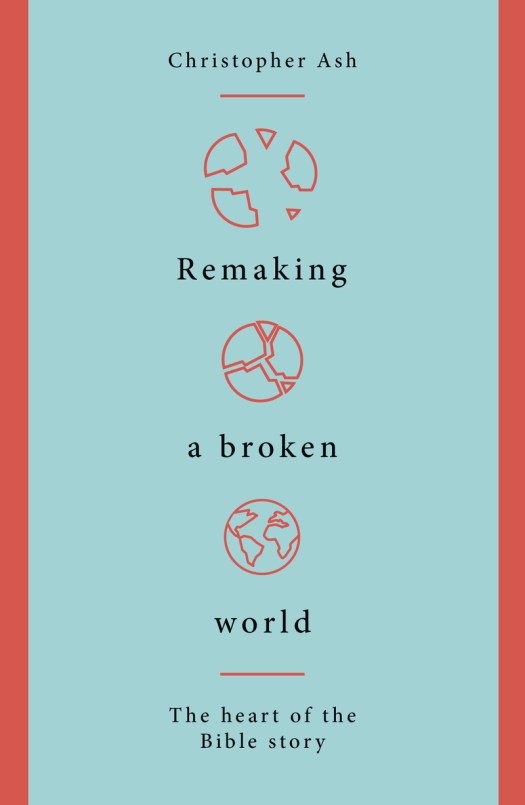
How Does the Cross of Christ Make Sense of the Kingdom of God? Jeremy Treat writes, “Countless books on the kingdom hardly mention Christ’s cross. Volumes on the cross ignore Jesus’ message of the kingdom. The polarization of these two biblical themes leads to divergent approaches: cross-centered theology that focuses on the salvation of sinners or kingdom-minded activism that seeks to change the world. . . . . It’s as if we are left with a choice between either a kingdom without a cross or a cross without a kingdom; this false dichotomy truncates the gospel and cripples the church.” But these two themes are wonderfully integrated in Scripture. Treat explains how.
Mourning the death of a dwelling place Hayden Hefner writes, “Several years ago, my wife and I purchased our first home. Several weeks from now, we will lock the front door for the last time. . . . . . . . locking the front door for the last time will feel like a sort of death. It is the fading away of a physical reminder. It is the death of a dwelling place. But, he writes, ”The death of an earthly dwelling place reminds us we have a new and better homecoming . . . .
A tale of two liturgies Matt Merker writes, “We should see the church’s worship service—the whole thing, not just the sermon—as a mass discipling activity. . . . . Since the gathering is such a powerful corporate discipling tool, we should treat liturgy with care. ”
One Thing I Did Right in Ministry: “I Started a Book Table” Tom Ascol writes, “One of the first things that I did when I became pastor of the church I now serve was to start a book table where good books at discounted prices were made available to our congregation.” Ascol explains how books have strengthened discipleship in his congregation.
How Does the Cross of Christ Make Sense of the Kingdom of God?
Jeremy Treat writes, “Unfortunately today, many Christians either cling to the cross or champion the kingdom, usually one to the exclusion of the other. Countless books on the kingdom hardly mention Christ’s cross. Volumes on the cross ignore Jesus’ message of the kingdom. The polarization of these two biblical themes leads to divergent approaches: cross-centered theology that focuses on the salvation of sinners or kingdom-minded activism that seeks to change the world. Whole churches or movements are built on one idea or the other. It’s as if we are left with a choice between either a kingdom without a cross or a cross without a kingdom; this false dichotomy truncates the gospel and cripples the church.“ Treat asks how these two central themes of Scripture came to be pitted against each other and comments, “We need a better way forward than “kingdom versus cross.” And it’s not enough to merely seek “kingdom and cross,” as if these were two competing values that need to be held in tension. The key is not balance, but integration. And that’s exactly what we find in Scripture, an unfolding narrative that weaves together atonement and kingdom like a crown of thorns, fit for a crucified king.” After briefly tracing this narrative, he concludes, “The kingdom comes in power, but the power of the gospel is Christ crucified.”
Read the whole article HERE. This article was published in the August 2019 issue of the 9Marks Journal, an issue entitled The Heart of the Gospel: Penal Substitutionary Atonement. This issue contains 23 articles, including J.I. Packer’s classic lecture entitled What did the Cross Achieve: the Logic of Penal Substitution. You can download the entire issue free of charge, either using the link on the left-hand side of the page containing Treat’s article, or from the page HERE. Dr Jeremy Treat is the author of The Crucified King: Atonement and Kingdom in Biblical and Systematic Theology (the publishers page is HERE) and Seek First: How the Kingdom of God Changes Everything (the publishers page is HERE).
Click here to go back to table of contents
Mourning the death of a dwelling place.
“Several years ago, my wife and I purchased our first home. Several weeks from now, we will lock the front door for the last time. If I’m being honest, the thought of selling our little home makes me sad. This house has been the backdrop and base camp for some of the most memorable and formative moments of our life together. . . . . . . . locking the front door for the last time will feel like a sort of death. It is the fading away of a physical reminder. It is the death of a dwelling place. He comments, “having a home is a good thing. Home is God’s idea. . . . . We were not made for walking away from home.” In his conclusion, he writes, ”The death of an earthly dwelling place reminds us we have a new and better homecoming—one not subject to peeling paint, weather damage, or financial foreclosure, but designed and built by the Lord (Hebrews 11:10).”
Read the whole article HERE.
Click here to go back to table of contents
A tale of two liturgies.
Justin Taylor shares an excerpt from Matt Merker’s book Corporate Worship: How the Church Gathers as God’s People (published by Crossway; the publisher’s page is HERE).
Matt Merker explains, “Many theologians have called the order of service a “liturgy.” The Greek term leitourgia referred to work done for the good of the public. When used in the context of a church gathering, “liturgy” refers to the “work” or ministry of exaltation and edification for which God gathers his people—or better, that God himself performs in and through his people.” He writes, “For me, liturgy refers to the order of the worship service, particularly how it reveals and reinforces the nature of the service itself. ” Merker points out: “We should see the church’s worship service—the whole thing, not just the sermon—as a mass discipling activity. . . . . Since the gathering is such a powerful corporate discipling tool, we should treat liturgy with care.” Merker shows how this works in practice by taking two contrasting orders of service, from the gatherings of two different churches. These churches have congregations of the same size, use the same musical instruments and have the same theological beliefs. But their liturgies are different, in ways that are significant. His first example is an order of service typical of many evangelical churches. The second is an example of a gathering at a Presbyterian church in Brazil. Merker then notes four weaknesses of his first example. One of these relates to prayer and the public reading of Scripture. Merker comments, “this order of service leaves two of the most essential elements of corporate worship out to dry: prayer and Scripture reading. There is no other Scripture reading in the service, aside from what the pastor might read in his sermon. And the prayers serve as transitions, not as substantive elements of worship in their own right.”
The message to take away is this: if key elements of the order of service are missing, or if the order of service is disjointed or theologically weak, the worship service is less glorifying to God, less effective in building up believers, and less able to communicate the Gospel message to unbelievers in the congregation. Through the prayers, the Scriptures being read, the preaching, the hymns and songs, through baptism and the Lord’s Supper, we should, as Merker writes, “strive to fill our services with the life-giving water of the Word of God.”
Read the whole article HERE.
Click here to go back to table of contents
One Thing I Did Right in Ministry: “I Started a Book Table”.
Tom Ascol writes, “One of the first things that I did when I became pastor of the church I now serve was to start a book table where good books at discounted prices were made available to our congregation. . . . . . . . within a matter of months we had a table full of good titles for sale as a fixture in our foyer. Within a year or two, the “Book Table” became a line item in our budget and the church adopted a policy that if anyone who wanted one of the books but could not afford to pay, he or she could have it in exchange for a promise to read it. I often recommend books both publicly and in private conversations. When someone takes my recommendation I try to follow up in a few weeks to ask what they think of the book, what they are learning or if the book has raised any questions for them. That has led to some very fruitful conversations and opportunities for ministry.”
Ascol concludes, “Through the years I have seen good books supplement the ongoing preaching and teaching ministry of the church, encourage personal and spiritual growth, help with counseling, equip for ministry and help people develop a growing love for truth. . . . . So I would encourage every pastor to start a book table if one doesn’t already exist in the church he is serving. That is one thing that, by God’s grace, I did right early in my ministry.”
Read the whole article HERE.
Click here to go back to table of contents








